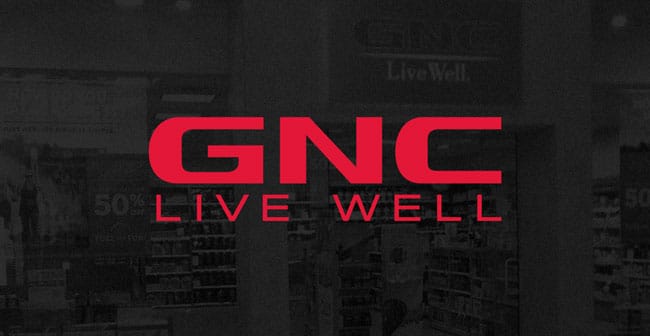
Nutrition retailer GNC filed for chapter 11 bankruptcy protection today, and will shutter 800 to 1,200 stores nationwide.
In a Customer FAQ page on its website, the company said its ongoing efforts to address “several years of financial pressure” were derailed by the COVID-19 pandemic, which “created a situation where we were unable to accomplish our refinancing and the abrupt change in the operating environment had a dramatic negative impact on our business.”
In filing for bankruptcy protection, GNC is hoping to have a platform to realign its balance sheet by, among other things, closing some of its 4,800 stores in the U.S. An initial list of 248 stores set to be shut down was published on the company’s website.
In its statement, the company said this would allow it to exit “unfavorable lease terms” and shift resources to standalone store locations with higher foot traffic.
“Over the past year, GNC has been executing a store portfolio optimization strategy to close underperforming stores, while doubling down on our omni-channel and brand strategies to better meet consumer demand,” the company stated. “We believe that our strategy is sound, and the success we’ve seen thus far makes us confident we’re moving our business in the right direction.”
In addition, GNC stated in a press release today that it has entered an agreement in principle for the sale of the business at a price tag of $760 million, to be executed through a court-supervised auction process at which higher bids may be presented. The prospective buyer is an affiliate of GNC’s largest stakeholder, China-based Harbin Pharmaceutical Group Holding.
In concert with lenders and stakeholders, the company said it expects to confirm “a standalone plan of reorganization or consummate a sale that will enable the business to exit from this process in the fall of this year.”
The 85-year-old company, based in Pittsburgh, sells a variety of nutrition and health products, including foods, beverages and supplements, among others. Along with e-commerce, GNC’s retail operations span a variety of store formats, from mall locations to standalone buildings to mini-stores within 1,600 Rite Aid pharmacies.
According to Fortune, GNC had $895 million in long-term debt.
In recent years, the retail chain has served as a showcase for emerging health and wellness CPG brands. In an email to BevNET, John Fieldly, CEO of fitness energy drink maker Celsius, said the company was “saddened” to hear about the bankruptcy of its “longtime partner” GNC.
“We truly appreciate them always carrying CELSIUS products and encouraging consumers to LIVE FIT,” he said. “We hope this restructuring allows them to continue to lead innovation in the Sports Nutrition industry.”